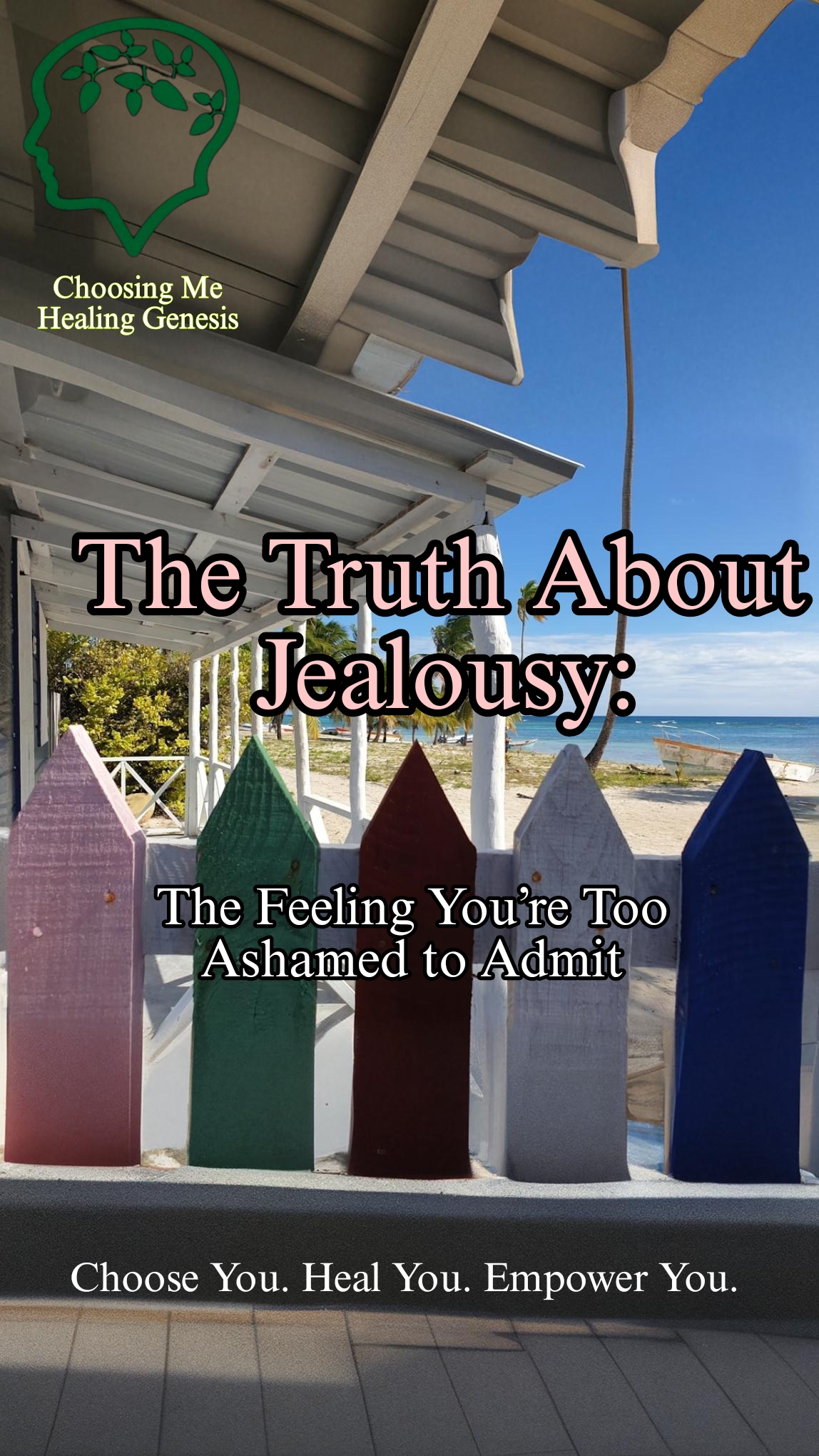The Truth About Jealousy: The Feeling You’re Too Ashamed to Admit
Jealousy. Even just saying the word feels wrong, like it shouldn’t belong to someone “good” or “put-together.” But it does, doesn’t it? It creeps in, twisting its way around your heart in moments you least expect. And before you know it, you’re overwhelmed, a mess of feelings you’re not even sure you understand.
But here’s the thing—jealousy isn’t just about wanting what someone else has. It’s bigger, deeper, and a whole lot messier than that. And until we stop seeing it as just a sign of insecurity or envy, we’ll never truly understand it.
So, let’s sit with it. Let’s unearth the truth about jealousy, one uncomfortable piece at a time.
The Fear Beneath It All
What if jealousy isn’t about the object of envy at all? Maybe it’s a signal—your mind waving a bright red flag, pointing to something deeper.
At its root, jealousy often whispers, “You’re not enough.” Not good enough, not wanted enough, not loved enough. It stems from a fear of being excluded, abandoned, or replaced. That friend who seems closer to someone else? The colleague getting more recognition? It’s not just the situation—it’s the gnawing worry that you’re losing your place in someone’s life or in the world.
Jealousy isn’t just a reaction; it’s a fear of loss. The loss of belonging. The loss of significance. And sometimes, the fear that someone else’s gain confirms your lack.
A Wound or a Compass?
What if jealousy isn’t inherently bad? What if it’s like a wound—painful, yes, but also a signal that something deeper needs healing?
When you feel jealousy, it’s worth asking: What am I afraid of losing? What part of me feels unseen or unloved right now?
Sometimes, jealousy highlights areas in your life where you’re craving more. Not more things, but more connection, more purpose, more acknowledgment. It’s not the shiny car or the relationship that you’re really after—it’s the feeling of being wanted, secure, and valued.
But here’s the twist: jealousy can also be a compass. It can point you to your desires, showing you the parts of life you long to nurture. The key is not letting it spiral into bitterness, but using it to reflect on what truly matters to you.
When Jealousy Takes Over
There’s a limit, though. Left unchecked, jealousy can grow into something toxic—resentment, bitterness, even self-destruction. It can make you push people away, build walls, and hold grudges that only deepen the loneliness you were afraid of in the first place.
The line between healthy and harmful jealousy is thin. Healthy jealousy motivates—it pushes you to work on yourself and your relationships. Harmful jealousy isolates—it convinces you that you’re unworthy, that others are threats, that the world is against you.
Controlling the Uncontrollable
Here’s the thing about jealousy: you can’t stop it from showing up. It’s human, after all. But you can control how you respond to it.
1. Name It. The moment you feel that pang, pause and name it. “This is jealousy.” Naming it strips it of some of its power.
2. Question It. Ask yourself, What am I really afraid of here? Often, it’s not the surface-level situation but a deeper fear that needs attention.
3. Redirect It. Use jealousy as a mirror, reflecting what you want for yourself. Instead of fixating on someone else’s life, focus on how you can create joy in your own.
4. Speak It. Sometimes, the best way to diffuse jealousy is to admit it out loud—to yourself or even to the person you’re jealous of. Vulnerability can be freeing.
The Bottom Line
Jealousy isn’t a monster to be feared or a flaw to be hidden. It’s a part of being human—messy, complicated, and, yes, sometimes painful. But it’s also an invitation. A chance to look inward, to ask yourself what you need, and to reconnect with your own worth.
So the next time jealousy shows up, don’t shove it down. Sit with it. Listen to it. Let it guide you—not into resentment, but into self-discovery. Because at its core, jealousy isn’t about them—it’s about you. And that’s where the real work begins.


0 Comments